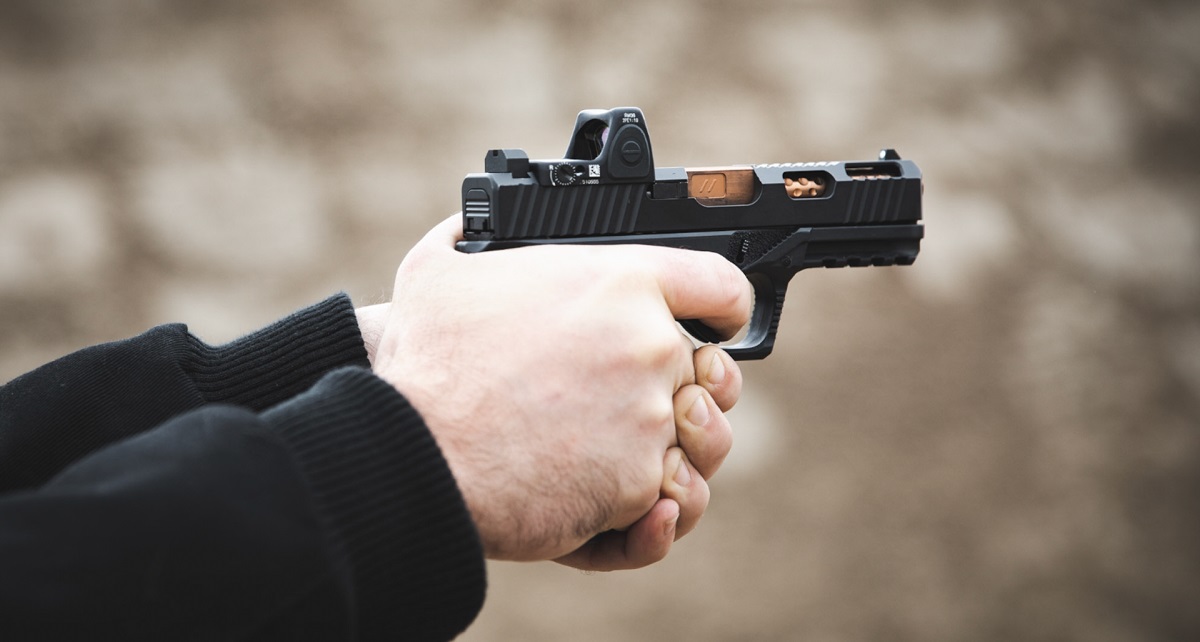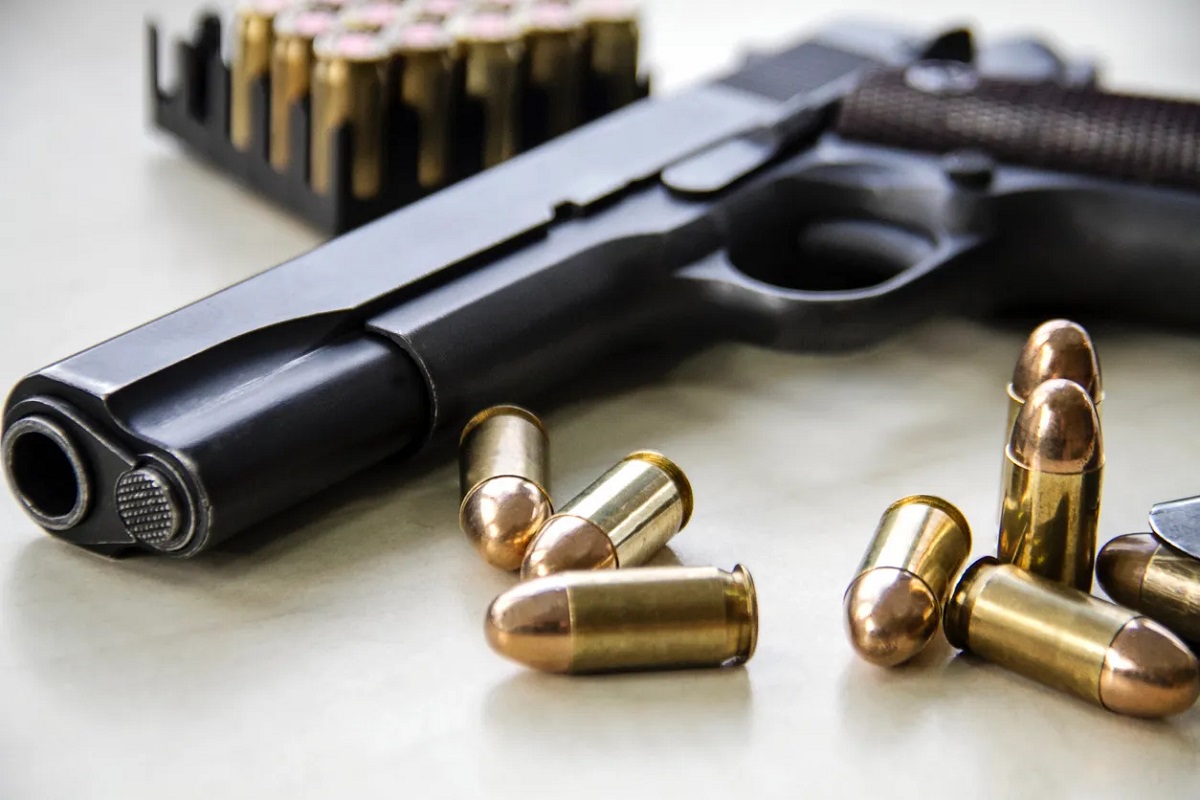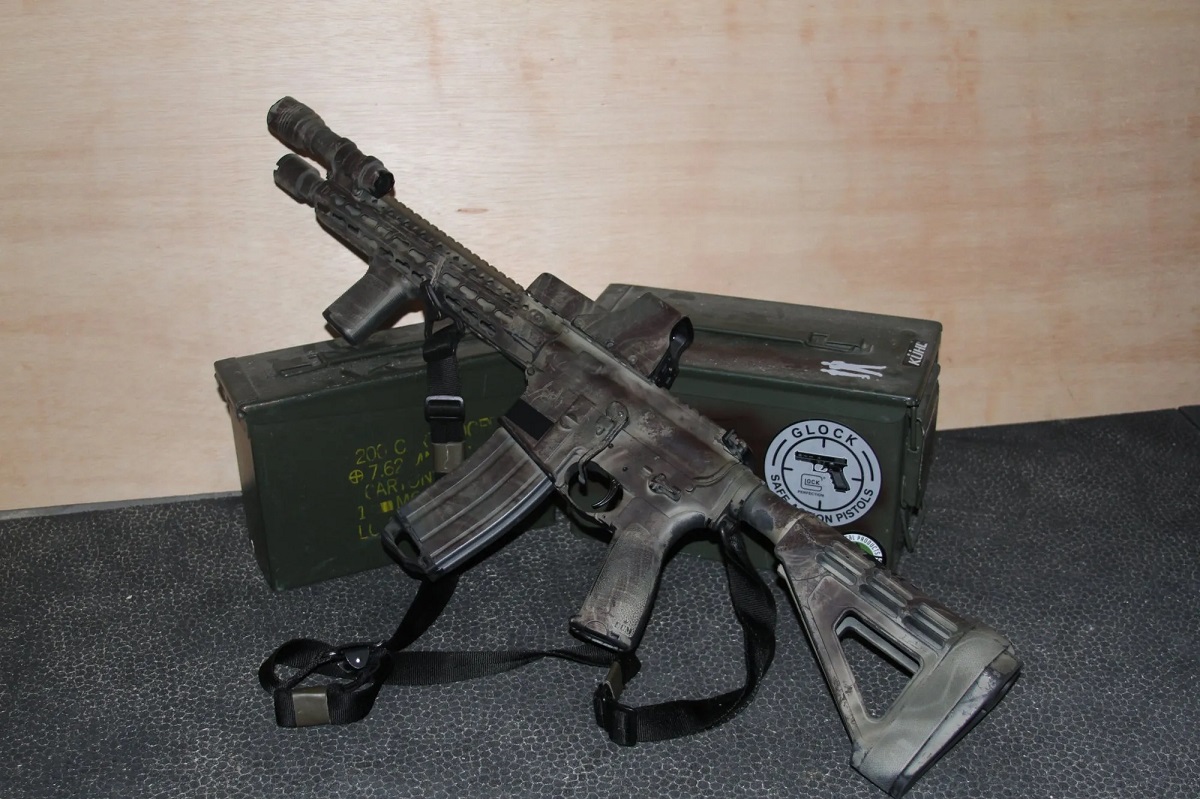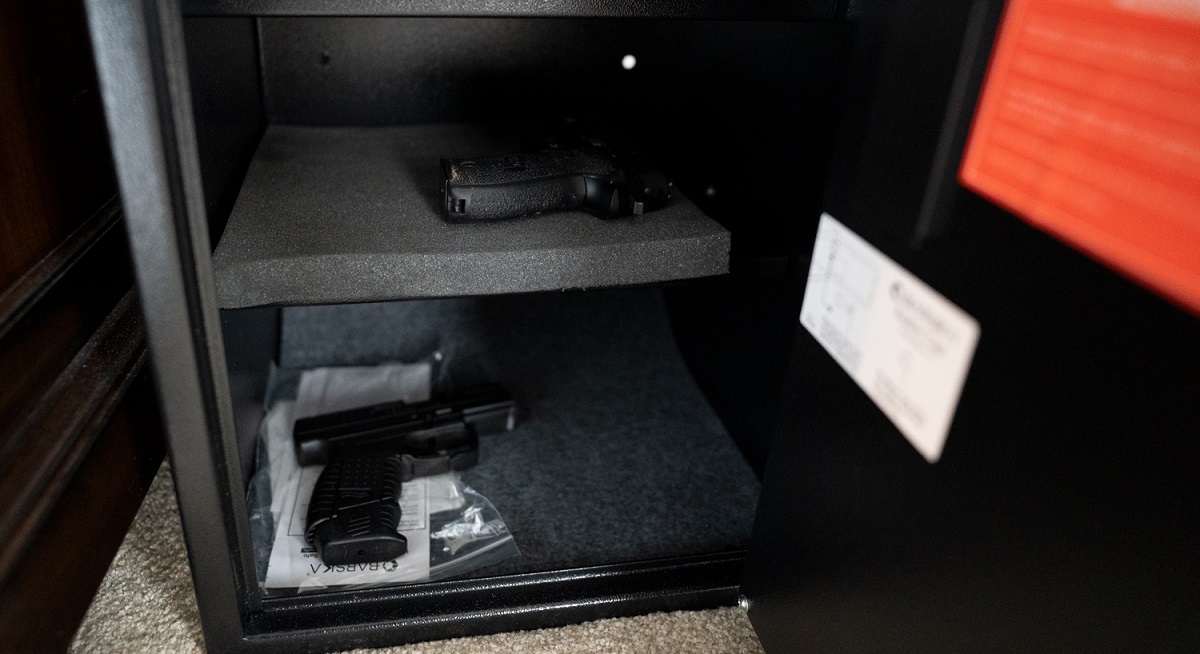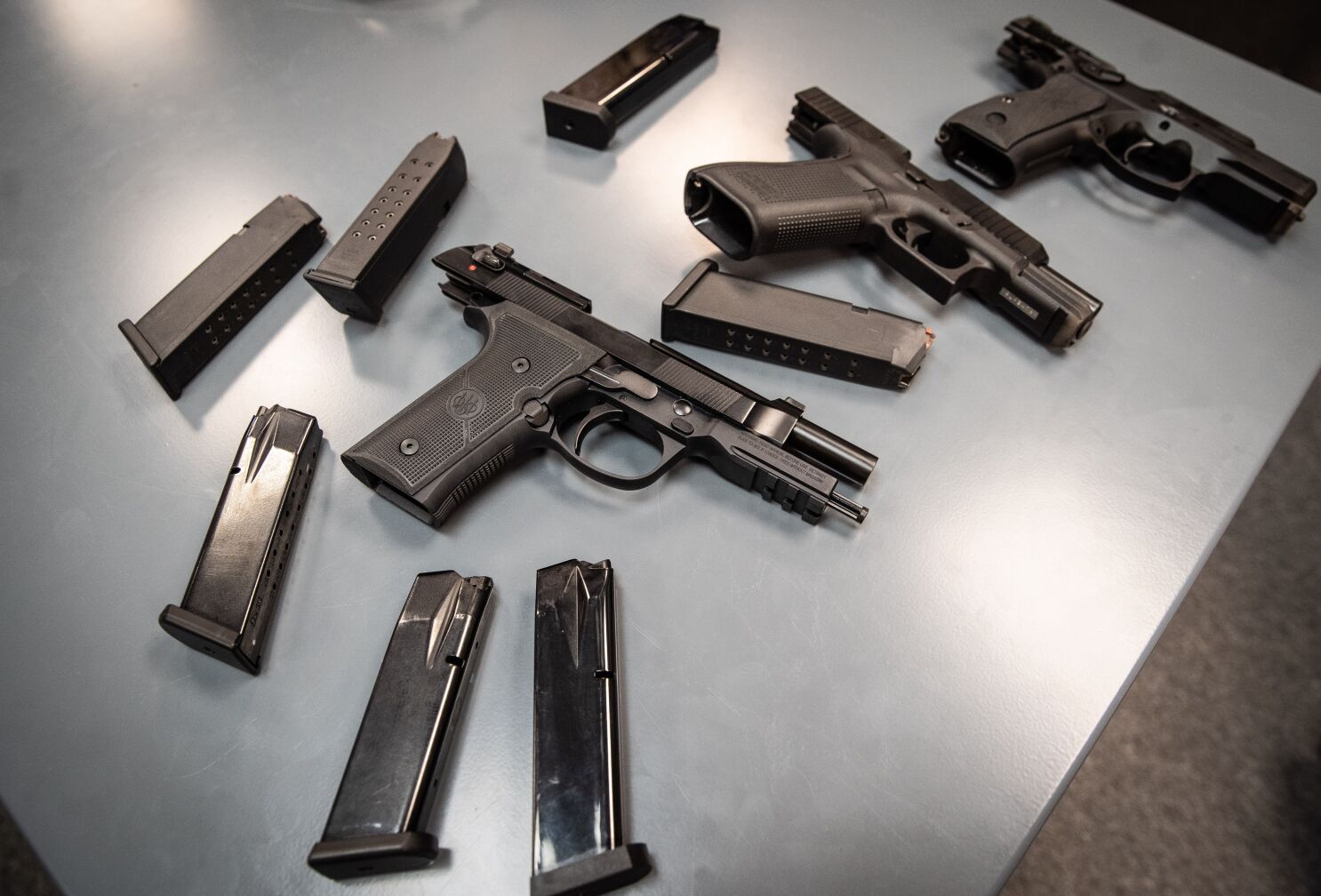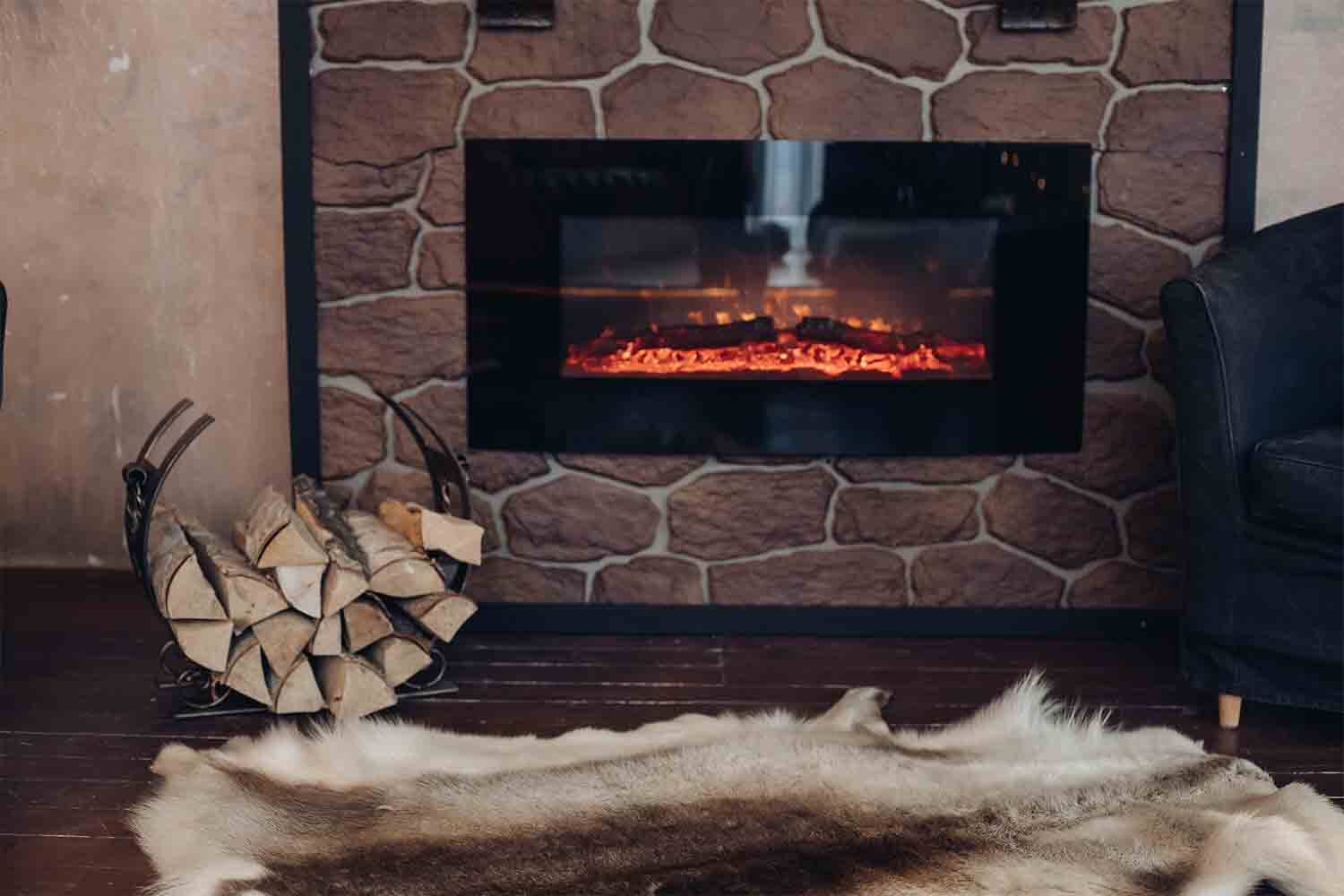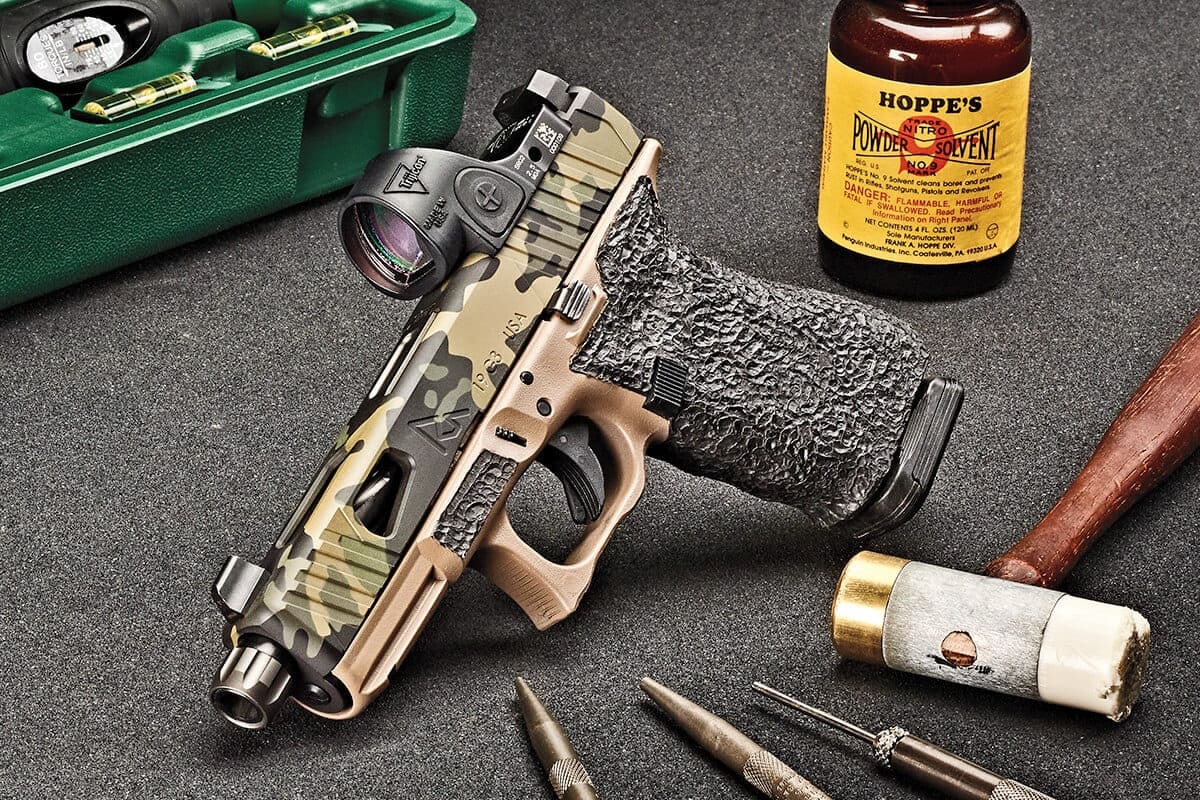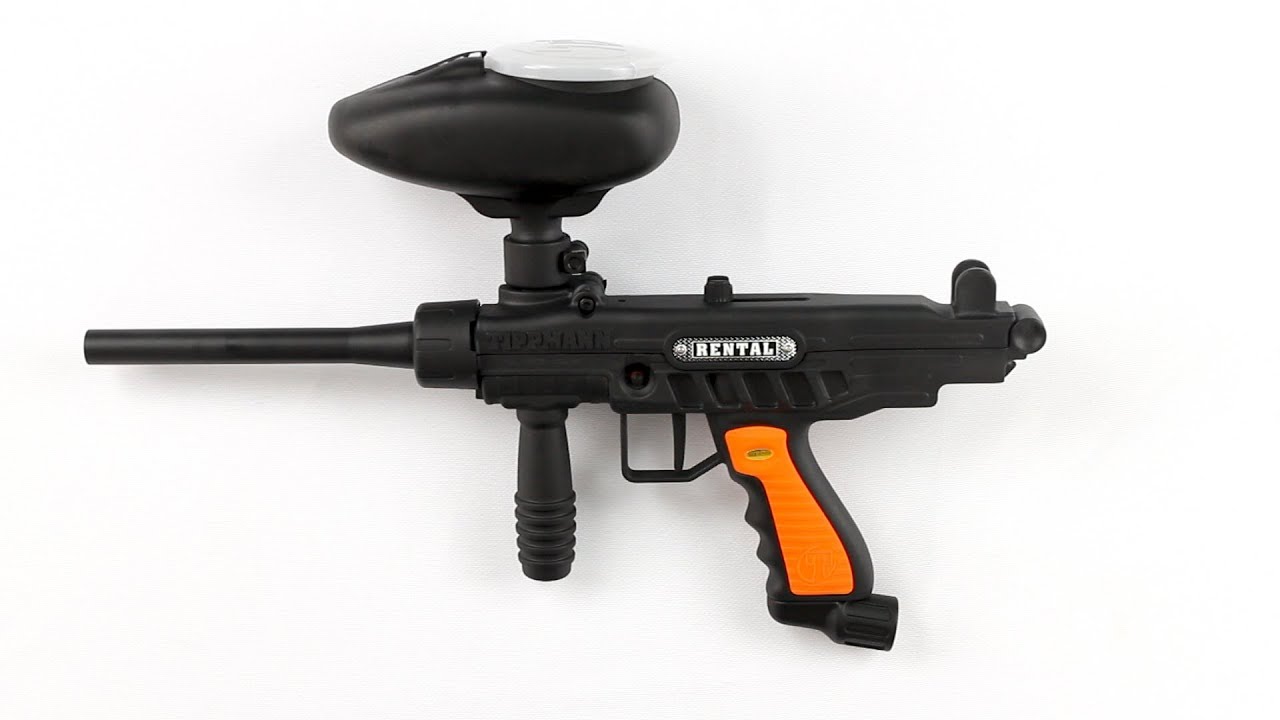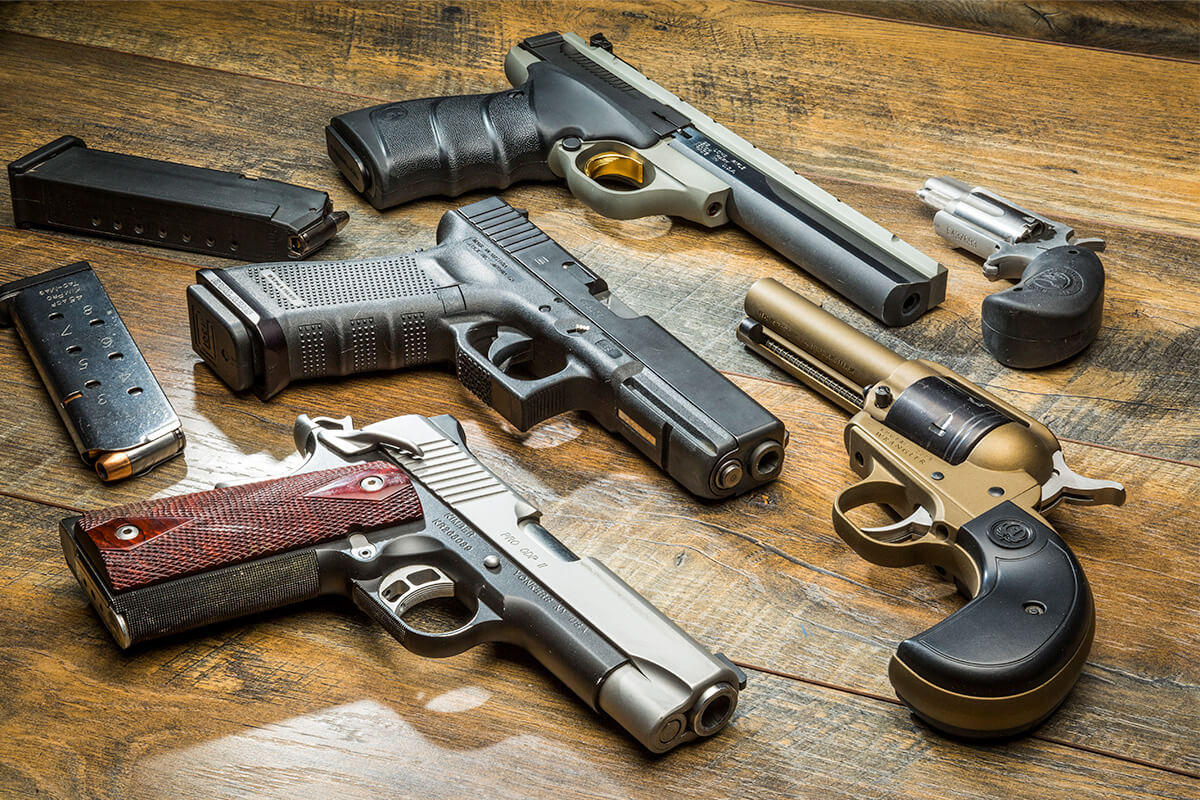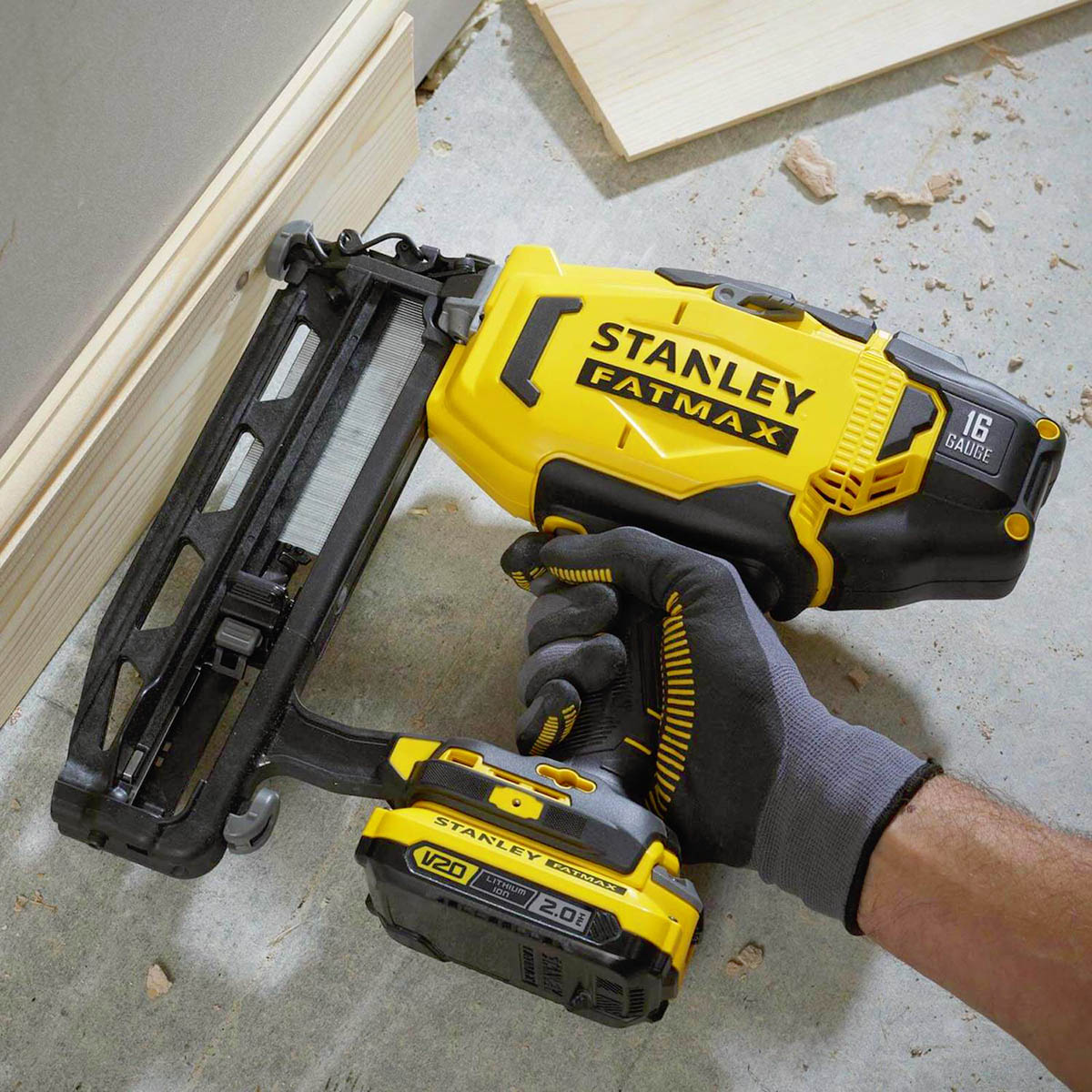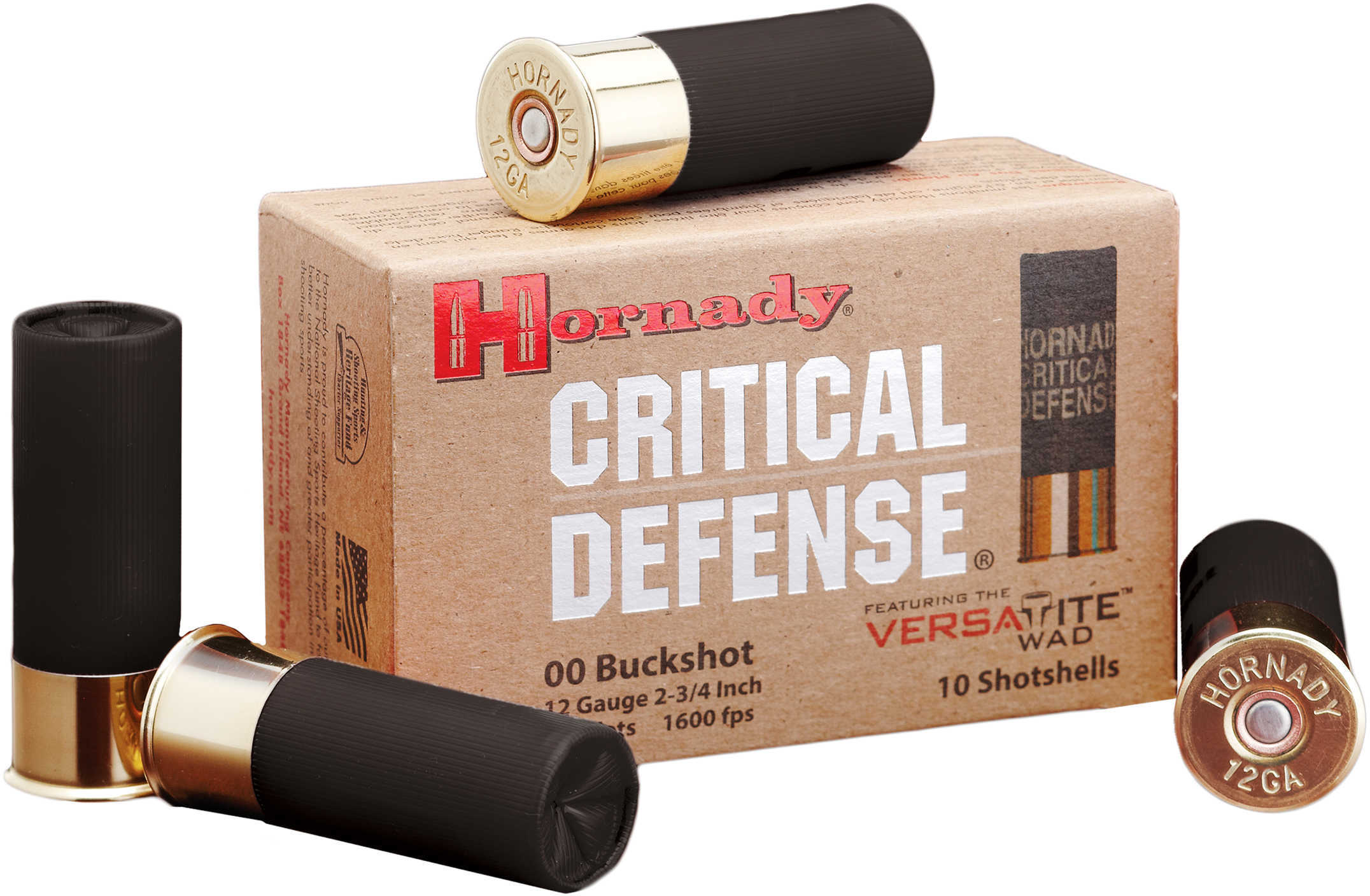Home>Home Security and Surveillance>What Kind Of Home Defense Gun Can I Have In The Home
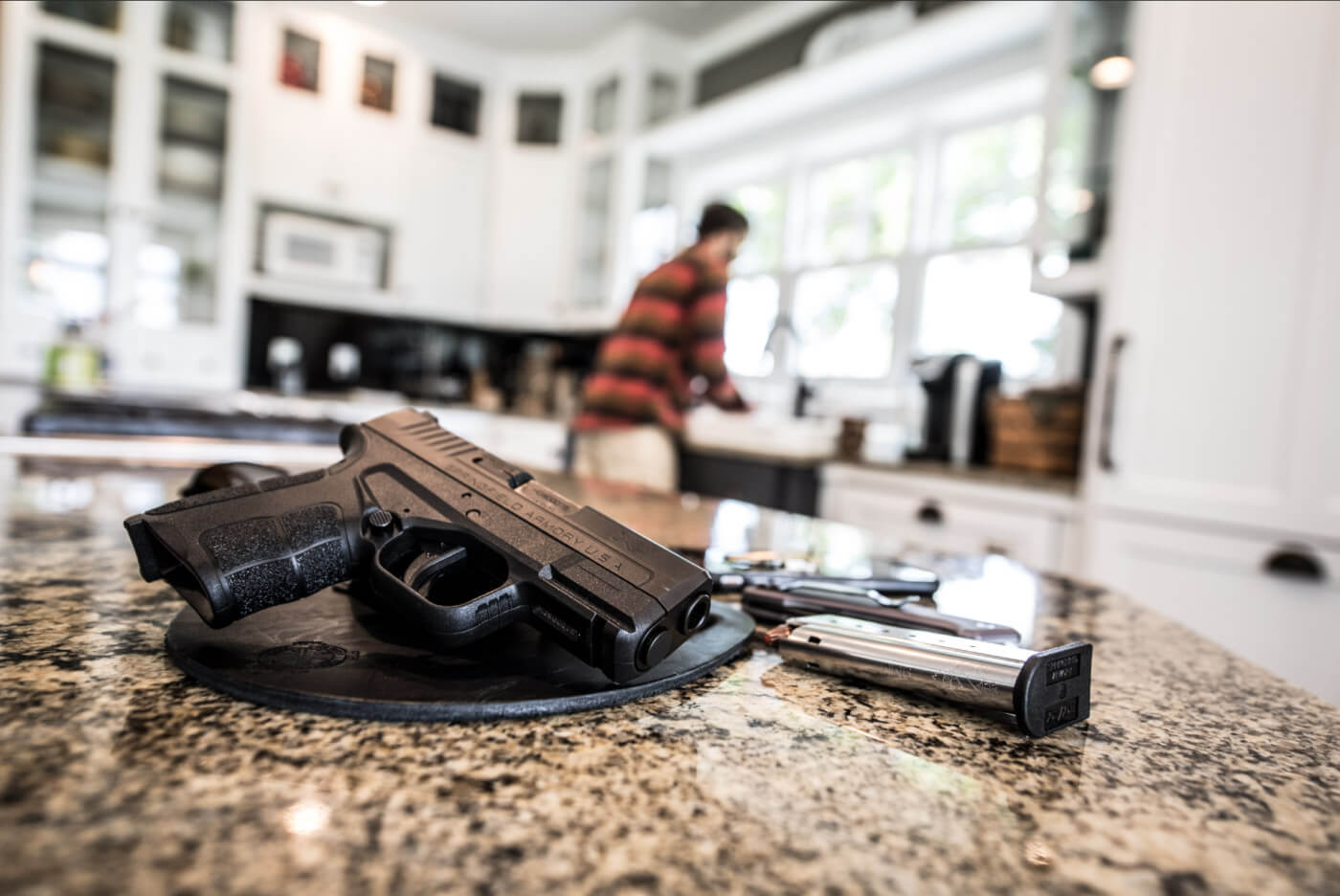

Home Security and Surveillance
What Kind Of Home Defense Gun Can I Have In The Home
Modified: August 16, 2024
Looking for the best home security and surveillance options? Discover what kind of home defense gun is perfect for keeping your home safe.
(Many of the links in this article redirect to a specific reviewed product. Your purchase of these products through affiliate links helps to generate commission for Storables.com, at no extra cost. Learn more)
Introduction
Welcome to our comprehensive guide on home defense guns. In a world where safety and security are paramount, it’s essential for homeowners to be prepared for potential threats. A home defense gun can offer peace of mind and serve as a crucial line of defense against intruders or other dangerous situations. But with various types of guns available on the market, it can be overwhelming to determine which one is right for you.
In this article, we will provide you with a detailed overview of home defense guns, including their legal considerations, different types, and tips for choosing the right one for your needs. Additionally, we will discuss the importance of training and proper storage to ensure the utmost safety in your home. So, let’s dive in and equip you with the knowledge you need to make an informed decision when it comes to protecting yourself and your loved ones.
Key Takeaways:
- Choose a home defense gun that suits your needs, comfort, and local laws. Proper training, regular practice, and responsible storage are crucial for effective and safe firearm ownership.
- Handguns, shotguns, and rifles each have unique advantages for home defense. Prioritize safety, secure storage, and legal compliance to enhance home security and protect loved ones.
Understanding Home Defense Guns
Before delving into the specifics of home defense guns, it’s crucial to understand their purpose and functionality. Home defense guns are firearms specifically designed for protecting your home and loved ones in the event of an intruder or threat. These guns are typically compact, easy to handle, and suited for close-quarters combat.
When it comes to home defense, speed and accuracy are of utmost importance. Therefore, home defense guns are usually designed to be easy to maneuver, allowing homeowners to effectively navigate through confined spaces, like hallways or staircases, where confrontations may take place.
It’s important to note that the primary goal of a home defense gun is to deter or incapacitate the threat without causing unnecessary collateral damage. To accomplish this, home defense guns are typically chambered for low-to-medium powered ammunition. This strikes a balance between stopping power and minimizing the risk of overpenetration, which could inadvertently harm innocent bystanders or damage property.
Additionally, most home defense guns feature user-friendly controls and safety mechanisms, enabling homeowners to quickly and intuitively operate them under high-stress situations. This ensures both the effectiveness and safety of using a home defense gun in the event of an emergency.
Now that we have a basic understanding of home defense guns, let’s explore the legal considerations involved in owning one.
Legal Considerations for Home Defense Guns
When it comes to owning a home defense gun, it’s crucial to understand and abide by the laws and regulations governing firearms in your jurisdiction. The specific regulations can vary significantly depending on your country, state, or even local municipality. It’s important to consult your local firearms laws and seek legal advice if needed to ensure compliance. However, we will provide some general considerations to keep in mind.
1. Licensing and Permits: In many jurisdictions, owning a firearm requires obtaining a license or permit. This process typically involves background checks, training certifications, and a waiting period. It’s essential to fulfill all necessary requirements and maintain a valid license or permit.
2. Restricted Firearms: Some jurisdictions categorize certain types of firearms as “restricted” or “prohibited.” These may include specific models, automatic weapons, or firearms with a high magazine capacity. Understanding the restrictions on these firearms is crucial to ensure compliance.
3. Storage and Transportation: Laws regarding the storage and transportation of firearms vary widely. Many jurisdictions require firearms to be stored in a secure and locked container, usually separate from ammunition. It’s vital to invest in appropriate storage solutions to prevent unauthorized access.
4. Use of Force Laws: It’s imperative to understand the laws surrounding the use of force in self-defense situations. These laws typically outline when the use of lethal force is justified and what steps should be taken to ensure a reasonable and proportional response.
5. Background Checks: When purchasing a home defense gun, you may be subject to a background check. This is to ensure that individuals with a criminal record or history of violence are not able to acquire firearms.
6. Domestic Violence Laws: In many jurisdictions, individuals with a history of domestic violence are restricted from owning firearms. It’s crucial to be aware of these laws to prevent any legal consequences.
Remember, these are general considerations, and it’s essential to research and understand the specific laws and regulations of your locality. Seeking guidance from legal professionals specializing in firearms laws can help ensure that you navigate the legal landscape appropriately.
Now that we’ve discussed the legal aspects, let’s move on to exploring the different types of home defense guns available.
Types of Home Defense Guns
When it comes to choosing a home defense gun, there are several options available. The right choice for you will depend on various factors, including personal preference, proficiency, and the layout of your home. Let’s explore the three main types of home defense guns:
-
Handguns:
Handguns are a popular choice for home defense due to their compact size, ease of use, and versatility. They can be either semi-automatic or revolvers. Semi-automatic handguns have a higher ammunition capacity and can quickly fire multiple rounds. Revolvers, on the other hand, have a simpler operation and are known for their reliability. Handguns are ideal for close-quarters combat and can be easily maneuvered within tight spaces.
-
Read more: Home Defense: When A Gun Is Not Enough
Shotguns:
Shotguns are a powerful option for home defense. They fire shells containing multiple small pellets called shot. When fired, these pellets spread out, increasing the chances of hitting the target. Shotguns come in various configurations, including pump-action, semi-automatic, and break-action. Pump-action shotguns require manually cycling the action to chamber the next round, while semi-automatic shotguns automatically load the next round. Shotguns offer excellent stopping power and are especially effective in close-range encounters.
-
Rifles:
Rifles are long-barreled firearms typically designed for accuracy, range, and power. While rifles may not be the first choice for home defense in all situations, they can be effective in certain scenarios. They offer greater accuracy and increased projectile velocity compared to handguns or shotguns, making them suitable for longer distances. Rifle options for home defense include semi-automatic rifles, bolt-action rifles, or even carbines. Rifles provide superior precision and can be an excellent choice for homeowners with larger properties or in rural areas.
Each type of home defense gun has its own advantages and disadvantages. It’s essential to consider factors such as ease of use, personal comfort, and proficiency when making a decision. Ultimately, the most important factor is choosing a firearm that you can handle effectively and safely.
Now that we’ve explored the different types of home defense guns, let’s move on to discussing how to choose the right one for your specific needs.
Handguns
When it comes to choosing a handgun for home defense, there are various factors to consider. Handguns are popular due to their compact size, ease of use, and versatility in navigating confined spaces. Here are some key points to keep in mind when selecting a handgun for your home defense needs:
- Caliber: The caliber refers to the size of the bullet the handgun fires. It’s important to choose a caliber that balances stopping power with manageable recoil. Common calibers for home defense handguns include .380 ACP, 9mm, .40 S&W, and .45 ACP. Consider factors such as recoil control, ammunition availability, and personal comfort when selecting a caliber.
- Action Type: Handguns can be either semi-automatic or revolvers. Semi-automatic handguns have a higher ammunition capacity and can be easier to reload quickly. Revolvers, on the other hand, offer greater reliability and simplicity of operation.
- Size and Capacity: Consider the size and capacity of the handgun. A compact or subcompact handgun may be more comfortable to carry or maneuver within your home. However, they tend to have a lower magazine capacity. Larger handguns, while more challenging to conceal, offer greater ammunition capacity.
- Ergonomics: Choose a handgun that feels comfortable in your hand and has ergonomic features that suit your grip. This will help with accuracy and overall control during a stressful situation.
- Sights: Good sights are crucial for quick and accurate target acquisition. Look for handguns with clear and easy-to-use sights. Some handguns offer night sights or the option to mount an optic for enhanced visibility in low-light situations.
- Accessories and Upgrades: Consider the availability and compatibility of accessories and upgrades for the handgun. This includes items like holsters, lights, lasers, and aftermarket parts.
It’s essential to handle and test different handguns before making a purchase. This will allow you to assess factors such as grip comfort, trigger pull, and overall shooting experience. Additionally, seek guidance from knowledgeable professionals or consider taking a firearm training course to ensure you make an informed decision.
Remember, owning a handgun for home defense also requires proper training and practice. Familiarize yourself with the operation of your firearm, practice regularly at the shooting range, and consider taking self-defense courses. This will not only improve your skills but also instill confidence in your ability to handle the handgun effectively.
Now that we’ve covered handguns, let’s move on to discussing shotguns as another option for home defense.
Shotguns
Shotguns are a popular choice for home defense due to their significant stopping power and versatility. When considering a shotgun for home defense, there are several factors to take into account:
- Action Type: Shotguns come in various action types, including pump-action, semi-automatic, and break-action. Pump-action shotguns, such as the widely known Remington 870 or Mossberg 500, require manually cycling the action to chamber the next round. Semi-automatic shotguns automatically load the next round after each shot, providing faster follow-up shots. Break-action shotguns, such as double-barrel shotguns, feature a hinge mechanism that allows for easy reloading.
- Gauge: The gauge refers to the internal diameter of the shotgun’s barrel and determines the size of the ammunition it fires. 12 gauge shotguns are the most common and versatile, offering a good balance between power and recoil. However, 20 gauge shotguns can be a suitable alternative with less recoil for those who prefer a lighter option.
- Barrel Length: Consider the barrel length of the shotgun. Shorter barrels, typically around 18 to 20 inches, provide better maneuverability in tight spaces like hallways and rooms. Longer barrels, such as those around 26 to 28 inches, offer improved accuracy and range for outdoor use.
- Stock Type: Shotguns typically have either a traditional shoulder stock or a pistol grip. Shoulder stocks provide better control and stability during firing, while pistol grips offer a more compact and maneuverable option. Some shotguns may also have adjustable or folding stocks to cater to different preferences and storage needs.
- Ammunition Selection: Shotguns can fire a variety of ammunition types, including buckshot, birdshot, and slugs. Buckshot is an excellent choice for close-quarters engagements, as it fires multiple large pellets that spread out upon discharge. Birdshot can be useful for minimizing overpenetration or in situations where collateral damage is a concern. Slugs, which are large single-projectile rounds, provide increased accuracy and range and are suitable for specific scenarios.
In addition to these factors, it’s crucial to practice shooting and become familiar with your shotgun. Shotguns can have significant recoil, so proper technique and stance are essential for managing recoil and maintaining accuracy.
When using a shotgun for home defense, it’s important to consider the potential for overpenetration. This refers to the risk of projectiles passing through walls and potentially causing unintended harm. To mitigate this risk, consider the layout of your home and choose appropriate ammunition. Additionally, training and practicing in low-light conditions can enhance your ability to handle the shotgun effectively during potential home defense situations.
As with any firearm, ensure that you store your shotgun securely and safely, out of reach of unauthorized individuals.
Now that we’ve covered shotguns, let’s move on to discussing rifles as another option for home defense.
Read more: What Is The Best Non-Gun Home Defense Weapon
Rifles
Rifles are versatile firearms that can be considered for home defense in certain situations. While not as commonly associated with home defense as handguns or shotguns, rifles have their own advantages. Here are some key points to consider when evaluating rifles for home defense:
- Action Type: Rifles can have different action types, including semi-automatic, bolt-action, or even carbines. Semi-automatic rifles allow for rapid follow-up shots, while bolt-action rifles require manual cycling of the action after each shot. Carbines are compact rifles, often chambered in pistol calibers, offering maneuverability and versatility.
- Caliber: Consider the caliber of the rifle. Popular options for home defense rifles include intermediate calibers like 5.56x45mm NATO or pistol calibers such as 9mm. These calibers offer a balance between manageable recoil, ammunition availability, and effectiveness in close to medium-range engagements.
- Accuracy and Range: Rifles are known for their accuracy at longer distances. While the typical home defense scenario occurs in close quarters, having a rifle with improved accuracy and range can be advantageous in certain situations, such as defending a large property or rural areas with longer sight lines.
- Size and Maneuverability: Consider the size and maneuverability of the rifle, especially in the confined spaces of a home. Opting for a compact or shorter-barreled rifle can enhance maneuverability without sacrificing too much accuracy or range.
- Optics and Sights: Rifles often have the option to mount optics, such as red dot sights or scopes, for improved target acquisition and accuracy. This can be beneficial in low-light conditions or for individuals who prefer the added clarity and precision offered by optics.
- Training and Familiarity: Rifles, especially semi-automatic rifles, can have unique handling characteristics and require proper training and practice to operate effectively. Familiarize yourself with the operation and maintenance of your chosen rifle to ensure safe and efficient operation.
It’s important to note that the use of rifles for home defense should be considered carefully, taking into account factors such as the layout of your property, legal regulations, and personal proficiency with the firearm. Rifles can offer increased accuracy and range but may also pose a higher risk of overpenetration compared to handguns or shotguns. Proper training, responsible ammunition selection, and awareness of your surroundings are critical when utilizing a rifle for home defense.
Remember to store your rifle securely and safely, following local laws and regulations regarding firearm storage.
Now that we’ve covered the different types of home defense guns, let’s move on to discussing how to choose the right one for your specific needs.
Choosing the Right Home Defense Gun
Choosing the right home defense gun is a crucial decision that requires careful consideration. Here are some factors to keep in mind to help you make an informed choice:
- Assess Your Needs: Evaluate your specific home defense requirements. Consider factors such as the layout of your home, the proximity of neighbors, and potential threats in your area. This assessment will help determine the type of firearm that suits your needs best.
- Consider Your Comfort Level: Choose a firearm that you feel comfortable and confident handling. Taking the time to handle different guns at a local gun store or shooting range can provide valuable insights into how a particular firearm feels in your hands.
- Take into Account the Size and Accessibility: Consider the size and accessibility of your chosen firearm. You want a gun that can be easily accessed in an emergency, yet securely stored to prevent unauthorized access. Strike a balance between quick access and proper storage.
- Seek Professional Advice: Consult with knowledgeable professionals, such as firearm instructors or experienced gun owners, for guidance and recommendations. Their expertise can help you make an educated decision based on your specific circumstances.
- Consider Ammunition Availability: Availability and affordability of ammunition should be factored into your decision. Choose a gun chambered in a commonly available caliber to ensure you can easily find ammunition for practice and self-defense purposes.
- Training and Practice: No matter which firearm you choose, it is crucial to undergo proper training and practice regularly. Familiarize yourself with your chosen firearm and develop proficiency in handling, aiming, and shooting. Training courses and regular trips to the shooting range will enhance your skills and confidence in using your home defense gun effectively.
- Accessories and Upgrades: Consider the availability and compatibility of accessories and upgrades for your chosen firearm. This includes items such as holsters, lights, lasers, or aftermarket parts that can enhance functionality or customization.
Remember, selecting a home defense gun is a personal choice, and what works for one person may not work for another. It’s important to assess your own needs, preferences, and abilities when making this decision.
Lastly, always prioritize safety and responsibility when owning a firearm. Securely store your home defense gun, prevent access by unauthorized individuals, and follow all applicable laws and regulations regarding firearms ownership and possession.
Now that we’ve discussed choosing the right home defense gun, let’s highlight the importance of training and proper storage for optimum safety.
Consider a shotgun or a handgun for home defense. Shotguns are effective at close range and have a lower risk of over-penetration. Handguns are easy to maneuver in tight spaces. Always follow local laws and receive proper training.
Factors to Consider
When selecting a home defense gun, there are several factors that you should consider to ensure you make the right choice for your specific needs. Here are some essential factors to keep in mind:
- Reliability: Choose a firearm known for its reliability. Your home defense gun should function flawlessly when you need it most. Look for reputable brands with a track record of producing reliable firearms.
- Stopping Power: Consider the stopping power of the chosen firearm. You want a gun that can effectively stop a threat and neutralize it. Choose a caliber and ammunition type that strikes a balance between stopping power and manageability for you.
- Ease of Use: Opt for a gun that is easy to use, whether it’s a handgun, shotgun, or rifle. It should have user-friendly controls, straightforward operation, and a comfortable grip that fits well in your hand.
- Recoil Control: Recoil can impact your accuracy and ability to quickly fire follow-up shots. Consider a firearm with manageable recoil, especially if you’re a beginner or have limited upper body strength.
- Capacity: Look at the magazine capacity of the firearm. Higher capacity means more rounds before needing to reload. However, be mindful of your local laws regarding magazine capacity limitations.
- Size and Maneuverability: Consider the size and maneuverability of the gun. It should be easy to handle and maneuver within the confines of your home. Compact or shorter-barreled firearms are often preferred for home defense due to their improved maneuverability in tight spaces.
- Ease of Maintenance: Look for a firearm that is easy to clean and maintain. Regular cleaning and maintenance are essential to ensure the reliable and safe operation of your home defense gun.
- Budget: Consider your budget when selecting a home defense gun. Firearms can vary significantly in price, so it’s important to find a balance between your budget and the quality and features you desire.
- Laws and Regulations: Familiarize yourself with the local laws and regulations regarding firearm ownership and self-defense. Ensure that your chosen firearm and its features comply with these laws.
By considering these factors, you can make an informed decision that aligns with your needs, personal preferences, and budget.
It’s crucial to remember that owning a home defense gun also comes with a responsibility to ensure proper training, regular practice, and safe storage. Let’s dive deeper into the importance of training and practice for effective use of your chosen firearm.
Training and Practice
When it comes to owning a home defense gun, training and practice are of utmost importance. Proper training and regular practice not only enhance your proficiency with your chosen firearm but also instill confidence and muscle memory that can be crucial in high-stress situations. Here are some key points to consider:
- Firearm Safety: Start your training by learning and practicing strict firearm safety protocols. Understand the basic principles of safe gun handling, including proper grip, finger discipline, muzzle awareness, and always treating the firearm as if it’s loaded. Safety should be your top priority at all times.
- Basic Handling and Operation: Familiarize yourself with the operation and functions of your home defense gun. Understand how to properly load and unload it, how the safety features work, and how to clear malfunctions if they occur. Develop proficiency in handling and operating the firearm safely and efficiently.
- Aiming and Shooting Techniques: Learn proper aiming and shooting techniques, including grip, stance, sight alignment, and trigger control. These fundamentals are essential for accuracy and control. Working with a professional instructor can greatly improve your shooting skills and help you build a solid foundation.
- Low-Light Training: Consider taking training sessions that simulate low-light or no-light conditions to prepare for potential home defense scenarios. Practice shooting with flashlights or weapon-mounted lights to ensure you can effectively identify and engage threats in low-light environments.
- Scenario-Based Training: Engage in scenario-based training that simulates potential home defense situations. This type of training helps develop decision-making skills, situational awareness, and the ability to respond effectively under stress. Seek out professional instructors or reputable training facilities that offer such specialized training.
- Defensive Tactics: Consider taking self-defense courses that teach defensive tactics specifically tailored for home defense situations. These courses can provide valuable knowledge on creating a secure home environment, understanding the legal aspects of self-defense, and developing effective strategies to protect yourself and your loved ones.
- Regular Practice: Regularly practice your shooting skills at the shooting range to maintain proficiency. Consistent practice helps reinforce muscle memory, build confidence, and improve your overall shooting abilities.
Remember, training and practice go hand in hand with responsible gun ownership. Adhering to safety protocols, continuously improving your skills, and staying up to date with the latest training techniques will help you become a competent and responsible firearm owner.
Additionally, it’s crucial to keep in mind that firearms should always be stored securely and inaccessible to unauthorized individuals, especially if there are children in the household.
Now that we’ve covered training and practice, let’s discuss the importance of storing and securing your home defense gun.
Storing and Securing Your Home Defense Gun
Properly storing and securing your home defense gun is essential to prevent unauthorized access and ensure the safety of yourself and others. Here are some crucial considerations when it comes to storing and securing your firearm:
- Safe and Secure Storage: Invest in a suitable firearm safe or lockbox to store your home defense gun. These containers should be made of durable materials and offer reliable protection against theft and unauthorized access.
- Access Control: Choose a storage solution that provides secure access control. This can include combination locks, electronic locks, or biometric fingerprint scanners. Select a method that is convenient for you while still offering a high level of security.
- Ammunition Storage: Store your ammunition separately from your firearms in a locked container. This helps prevent accidents and ensures that unauthorized individuals cannot access loaded firearms.
- Disassembly and Locking Devices: Consider disassembling your firearm or using additional locking devices such as cable locks or trigger locks. These devices add an extra layer of security, making it more difficult for unauthorized individuals to use the firearm.
- Hidden and Concealed Storage: Explore options for concealed or hidden storage to further enhance the security of your home defense gun. This can include specialized furniture or hidden compartments designed for safely storing firearms.
- Education for Family Members: Educate your family members, especially children, about firearm safety. Teach them to recognize and respect firearms, emphasizing that they are not toys and should only be handled by responsible adults.
- Secure Transportation: When transporting your home defense gun, ensure it is securely stored and unloaded. Use dedicated firearm cases or holsters designed for safe transportation to prevent accidental discharge or theft.
- Emergency Preparedness: Develop a plan for accessing your home defense gun quickly in case of an emergency. Ensure all authorized users are familiar with the plan and know how to access the firearm safely.
Remember, responsible gun ownership includes being diligent in securing your firearms to prevent accidents and unauthorized access. By taking the necessary precautions and investing in secure storage solutions, you can ensure the safety of yourself, your loved ones, and your community.
Lastly, regularly review and adhere to local laws and regulations regarding firearm storage to remain in compliance with legal requirements in your jurisdiction.
Now that we’ve covered the importance of storing and securing your home defense gun, let’s conclude our comprehensive guide on home defense guns.
Conclusion
Choosing the right home defense gun is a crucial decision that requires careful consideration. By understanding the different types of home defense guns, legal considerations, and factors to consider, you can make an informed choice that aligns with your specific needs and preferences.
Handguns, shotguns, and rifles each have their own advantages and are suited for different scenarios. Handguns offer compactness and maneuverability, shotguns provide significant stopping power at close range, and rifles offer accuracy and potential longer-range capabilities.
When selecting a home defense gun, it’s important to assess your needs, consider your comfort level, and be aware of local laws and regulations. Reliability, stopping power, ease of use, and size are also factors to keep in mind. Additionally, proper training and regular practice are essential for developing your skills and confidence in handling your chosen firearm effectively.
Once you have chosen your firearm, always prioritize safety and responsibility. Store and secure your home defense gun in a safe and locked container, separate from ammunition. Ensure that only authorized individuals have access to it, and educate your family members about firearm safety.
Remember that responsible gun ownership goes beyond just owning a firearm – it requires ongoing training, practice, and adherence to legal and safety protocols. By being a responsible gun owner, you can enhance the safety and security of your home.
It is crucial to remain up to date with local laws and regulations regarding firearms ownership, storage, and self-defense. Always consult with legal professionals and seek expert advice as needed.
We hope this comprehensive guide has provided you with valuable insights into home defense guns and helped you make an informed decision. With the right gun, proper training, and responsible storage, you can enhance your home’s security and protect yourself and your loved ones.
Stay safe, be responsible, and remember to prioritize the safety of yourself and others at all times.
Frequently Asked Questions about What Kind Of Home Defense Gun Can I Have In The Home
Was this page helpful?
At Storables.com, we guarantee accurate and reliable information. Our content, validated by Expert Board Contributors, is crafted following stringent Editorial Policies. We're committed to providing you with well-researched, expert-backed insights for all your informational needs.
